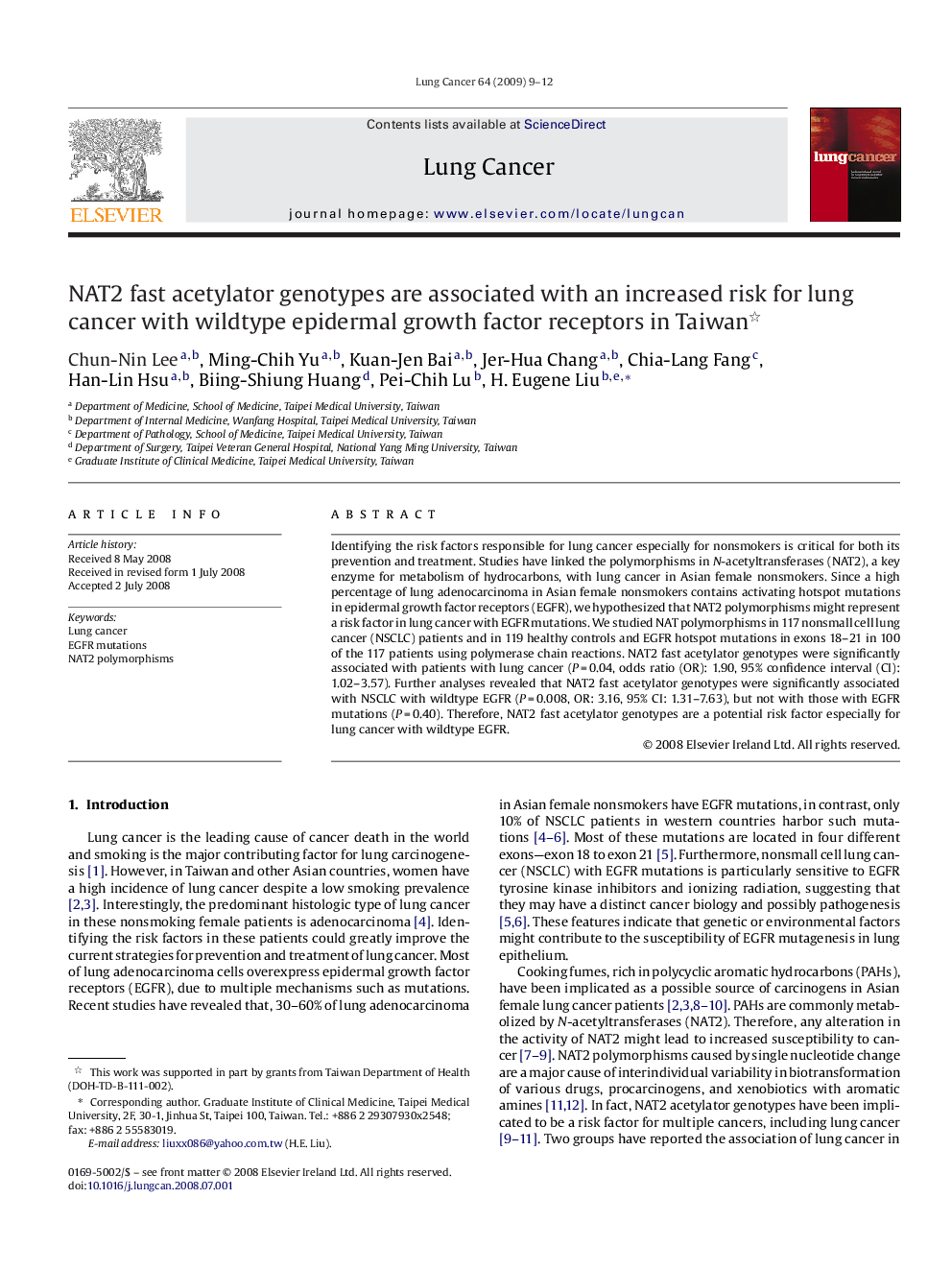| Article ID | Journal | Published Year | Pages | File Type |
|---|---|---|---|---|
| 2143362 | Lung Cancer | 2009 | 4 Pages |
Abstract
Identifying the risk factors responsible for lung cancer especially for nonsmokers is critical for both its prevention and treatment. Studies have linked the polymorphisms in N-acetyltransferases (NAT2), a key enzyme for metabolism of hydrocarbons, with lung cancer in Asian female nonsmokers. Since a high percentage of lung adenocarcinoma in Asian female nonsmokers contains activating hotspot mutations in epidermal growth factor receptors (EGFR), we hypothesized that NAT2 polymorphisms might represent a risk factor in lung cancer with EGFR mutations. We studied NAT polymorphisms in 117 nonsmall cell lung cancer (NSCLC) patients and in 119 healthy controls and EGFR hotspot mutations in exons 18-21 in 100 of the 117 patients using polymerase chain reactions. NAT2 fast acetylator genotypes were significantly associated with patients with lung cancer (PÂ =Â 0.04, odds ratio (OR): 1.90, 95% confidence interval (CI): 1.02-3.57). Further analyses revealed that NAT2 fast acetylator genotypes were significantly associated with NSCLC with wildtype EGFR (PÂ =Â 0.008, OR: 3.16, 95% CI: 1.31-7.63), but not with those with EGFR mutations (PÂ =Â 0.40). Therefore, NAT2 fast acetylator genotypes are a potential risk factor especially for lung cancer with wildtype EGFR.
Keywords
Related Topics
Life Sciences
Biochemistry, Genetics and Molecular Biology
Cancer Research
Authors
Chun-Nin Lee, Ming-Chih Yu, Kuan-Jen Bai, Jer-Hua Chang, Chia-Lang Fang, Han-Lin Hsu, Biing-Shiung Huang, Pei-Chih Lu, H. Eugene Liu,
